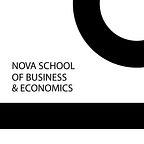The Portuguese Environment for Startups
Despite Portugal’s initial setback, the startup ecosystem improved considerably, and more money is being invested. So what does the future hold?
Portugal lists as one of the European countries that were most severely hampered by the global recession in 2008. Followed by the austerity measures implemented in 2011, unemployment boomed and triggered all-time high migration, particularly among younger and highly qualified people. This phenomenon significantly dampened Portugal’s more innovative sectors, making the country lag other economies regarding innovation, and thus the startup ecosystem.
In 2016, the Portuguese government implemented Startup Portugal, a startup acceleration initiative with the aims of rejuvenating the country’s industries, boosting economic growth, fostering foreign investment, and creating an international hub for innovation.
Also, in 2016, the Portuguese Prime-Minister António Costa announced, in the first Web Summit edition in Lisbon, a 200M€ fund to co-invest alongside VCs in local startups and foreign enterprises that reallocate in Portugal.
Indeed, a report conducted by Startup Europe Partnership stated that Portugal’s startup ecosystem is growing at a rate twice as fast as the European average. Unicorns Farfetch, the online luxury retail platform, the cloud-based call-center software Talkdesk or the low-code platform for private application creation Outsystems reiterate the fertility of the Portuguese soil for the creation of valuable global market conquerors.
Nowadays, Portugal has a more developed entrepreneurial ecosystem and is becoming a hub for innovation, being ranked #31 on the Global Innovation Index. This progress is a consequence of a qualified workforce, as well as quality Universities with particular regard to business and science. In fact, Portuguese universities such as Nova SBE, Católica Lisbon School of Business & Economics, and Instituto Superior Técnico are ranked amongst the best.
Portugal is characterized by a significant number of support initiatives for startups. The number of incubators and accelerators, for instance, has grown to more than 150 throughout the country. They prove to be successful as well: the Lisbon Challenge was named one of the top accelerators in Europe, and incubators like Startup Lisboa are also key players. There is a wide offer of services for starting and growing companies, ranging from co-working spaces to support services for intellectual property and product development. Consequently, Lisbon ranks top 5 in best performing European startup communities.
Despite the support regarding non-financial resources, the country still lacks monetary investment. Difficulty in raising funds helps explain the higher percentage of startups in the earlier stages of development, in comparison with the European average.
So far, remarkable improvements have been observable in the startup ecosystem in Portugal. However, there is still a long way to go until we reach the level of entrepreneurship development of our European peers. Venture capital is a valuable source of investment for newly founded companies, and, as of 2019, Portugal was still ranked bottom (out of 28 countries) in VC funds raised per capita, at only 4$ per capita. In terms of job creation, on average, each Portuguese startup employs 8,8 people, when the European average is 12,8. This fact may compromise the growth of national enterprises.
Evaluating the development stage of Portuguese recently founded companies, most of them (51.3 %), are in the “Startup stage,” meaning they have completed a marketable product/service and report first revenues/users, which is the most prominent stage of development for the majority of European countries. It is also noticeable that there are still many companies in the early stages of development — “Seed stage” — which accounted for 16.7% of startups in 2018, similar to the European trend.
Despite Portugal’s initial setback, what was once the country’s Achilles heel is now one of its most attractive factors. The startup ecosystem improved considerably, more and more money is being invested and, consequently, the hard work is starting to show results. As the country starts to roll out its first unicorns, the future looks promising.
This article is an adapted and shorter version of the original, which is available at theawarenessnews.com. Sources include An overview of the Portuguese Entrepreneurship Econsystem, Hakbe & Koenraads, Financial Times, Startup Europe Partnership, Dealroom.co, OECD, Tech5, and Statista.
Lourenço Paramés is currently in the second year of his Bachelor’s degree in Economics at Nova SBE. As a student, he takes part in the Nova SBE Awareness Student Club as Team Leader for Entrepreneurship. He is also a Senior Consultant at Nova Junior Consulting. Diogo Alves is currently a second-year Bachelor’s in Management student at Nova SBE. He is part of the Entrepreneurship Team at the Nova SBE Awareness Student Club and has recently started working as a Consultant for Nova Junior Consulting. Tiago Rebelo is also a second-year Bachelor’s in Management student at Nova SBE and is also part of the Nova SBE Awareness Student Club, where he writes for the Entrepreneurship Team about the world of business and startups, alongside Lourenço and Diogo.
